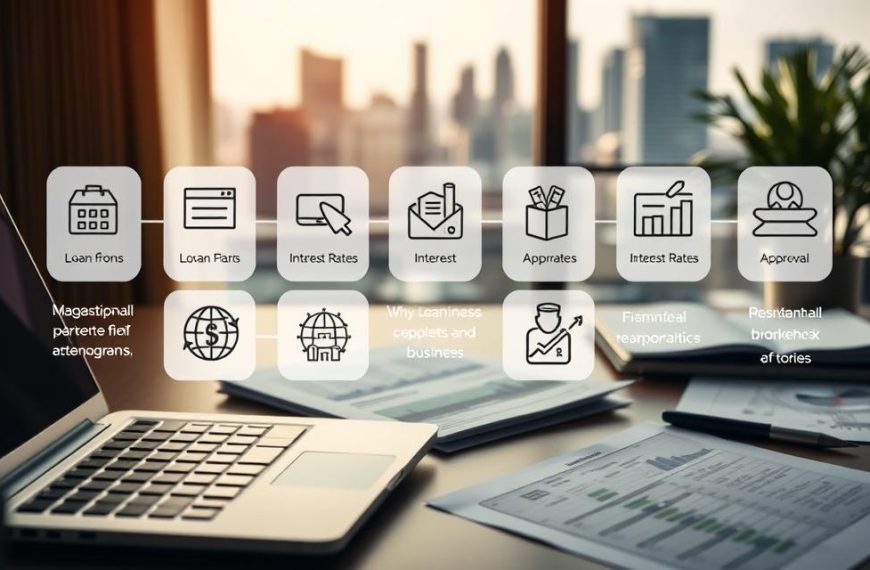When it comes to funding business operations or a new project, companies often face a critical decision: whether to use available cash or opt for financing options.
Paying cash may seem straightforward, but financing can be a more viable choice, depending on the financial situation and future plans of the business owners.
Understanding financing options and their implications on cash flow, tax, and long-term strategy is crucial for making informed decisions.
As the landscape of business payments evolves, it’s essential to examine the factors influencing payment preferences and the impact on business operations.
Understanding Business Payment Options
The choice between cash and financing is a crucial one for businesses, impacting their financial health and operational flexibility. Both cash and financing have their advantages and disadvantages, and the right choice depends on a business’s financial situation.
Using cash means immediate ownership with no interest costs, while financing allows businesses to conserve cash flow and spread costs over time. This fundamental difference affects a business’s financial structure and liquidity.
The Cash vs Financing Dilemma
The cash vs financing dilemma is a significant consideration for businesses. On one hand, paying cash upfront eliminates debt and interest payments. On the other hand, financing allows businesses to retain cash for other operational needs.
Businesses must consider their financial situation, growth stage, and industry type when deciding between cash and financing. For instance, a business with a strong cash reserve might prefer paying cash to avoid debt.
Factors Influencing Payment Decisions
Several factors influence a business’s payment decisions, including its size, industry, growth stage, and external economic conditions like interest rates. The psychological aspect, such as risk tolerance and attitude towards debt, also plays a crucial role.
| Factor | Impact on Cash Payments | Impact on Financing |
|---|---|---|
| Business Size | Larger businesses may have more cash reserves. | Smaller businesses may rely more on financing. |
| Interest Rates | Low interest rates make financing more attractive. | High interest rates make cash payments more appealing. |
| Growth Stage | Established businesses may prefer cash. | Start-ups may rely on financing for growth. |
Understanding these factors helps businesses make informed decisions about their payment options, aligning with their overall financial strategy.
The Case for Cash Payments
The choice between paying cash and financing is a significant one for businesses, impacting their financial health and operational flexibility. When businesses opt to pay cash, they gain several advantages that can strengthen their financial position.
Immediate Ownership and No Interest Costs
Paying cash upfront allows businesses to own assets outright, eliminating the need for ongoing loan repayments and interest charges. This approach can significantly reduce the total cost of ownership.
Cash Discounts and Negotiating Power
Many merchants offer discounts to customers who pay cash, with savings typically ranging from 2% to 4%. By paying cash, businesses can capitalize on these discounts, improving their bottom line. Moreover, cash payments can enhance a business’s negotiating power, as sellers often prefer cash transactions.
Avoiding Debt and Financial Obligations
Using cash for purchases helps businesses avoid accumulating debt and the associated financial obligations. This can lead to a healthier balance sheet and improved credit profile, as maintaining lower debt-to-income ratios is viewed favourably by lenders.
| Benefits of Cash Payments | Description |
|---|---|
| Immediate Ownership | Assets are owned outright without ongoing financial obligations. |
| Cash Discounts | Businesses can avail of discounts offered by merchants for cash payments. |
| Avoiding Debt | Reduces the accumulation of debt and associated financial burdens. |
When Do Businesses Prefer Cash?
The preference for cash payments among businesses depends on various factors. Businesses often weigh the benefits of paying cash against financing options based on their financial situation, the nature of the transaction, and industry practices.
Small Purchases and Operating Expenses
For small purchases and day-to-day operating expenses, businesses in retail, hospitality, and service industries often favour cash transactions. This preference is largely due to the simplicity and immediacy of cash payments.
Businesses with Strong Cash Reserves
Companies with substantial cash reserves tend to prefer paying cash for investments and purchases. This approach allows them to avoid debt and interest costs associated with financing.
Industries Where Cash Payments Are Common
Certain industries, such as gas stations and healthcare providers, commonly offer discounts for cash payments. For example, gas stations often provide a discount of 5 to 10 cents per gallon for cash purchases.
| Industry | Typical Cash Discount | Reason for Cash Preference |
|---|---|---|
| Gas Stations | 5-10 cents per gallon | Immediate payment, reduced processing fees |
| Healthcare Providers | Significant discounts on services | Avoidance of billing complexities and bad debt |
The Benefits of Financing for Businesses
Financing allows businesses to manage their cash flow more effectively, enabling them to pursue new opportunities while maintaining a stable financial position.
Preserving Working Capital and Cash Flow
By opting for financing, businesses can preserve their working capital and maintain a healthy cash flow, which is crucial for operational needs and unexpected expenses.
Tax Advantages and Deductions
Financing offers significant tax advantages, including deductions on interest payments and depreciation on financed equipment, reducing the overall tax burden.
Acquiring Advanced Equipment and Technology
With financing, businesses can acquire advanced equipment and technology, enhancing productivity and competitiveness without depleting their cash reserves.
Strategic financing can improve a business’s financial ratios and credit profile when managed responsibly. By maintaining emergency funds while pursuing growth opportunities, businesses can create a more resilient financial position.
When Do Businesses Prefer Financing?
Financing is a viable option for businesses looking to grow or expand without depleting their cash reserves. By opting for financing, businesses can preserve their working capital and maintain a healthy cash flow.
Large Capital Investments and Expansions
Businesses undertaking major expansions or facility upgrades typically prefer financing to preserve operational cash flow during these capital-intensive periods. For instance, a company looking to expand its manufacturing capabilities might seek a business loan for expansion to cover the costs of new equipment and facilities.
Seasonal Businesses and Cash Flow Management
Seasonal businesses strategically use financing to manage cash flow fluctuations, allowing them to make necessary investments even during lower-revenue periods. This approach enables them to maintain operational stability throughout the year.
Building Business Credit History
Newer businesses often choose financing as a deliberate strategy to establish and build their credit history, positioning themselves for more favourable financing terms in the future. By making timely repayments, businesses can improve their credit score and become more attractive to lenders.
By understanding when businesses prefer financing, companies can make informed decisions about their financial management and growth strategies.
Making the Right Payment Choice for Your Business
The decision to use cash or financing for business purchases is a critical one, with implications for cash flow, credit, and long-term growth. Businesses must consider their unique financial situation and weigh the pros and cons of each option.
When deciding between paying cash and opting for financing, businesses should consider factors such as cash flow analysis, growth projections, and tax considerations. By conserving cash flow and providing tax benefits, financing can be the better choice for businesses looking to acquire advanced equipment or technology.
To make an informed decision, businesses should:
- Evaluate their specific circumstances, including cash flow and growth projections.
- Consider both short-term benefits and long-term implications of their payment choices.
- Consult with financial advisors or business lending experts to ensure payment decisions align with broader financial strategies.
If you’re still unsure which option to go for, consider consulting a business lending expert for a free assessment and quotation tailored to your business needs. By doing so, you can make an informed decision that supports your business’s growth and financial stability.
FAQ
What are the benefits of paying cash for equipment purchases?
Paying cash upfront for equipment purchases can provide immediate ownership and eliminate the need for interest payments, thus reducing the overall cost.
How can financing options help businesses manage their cash flow?
Financing allows businesses to preserve their working capital and maintain a stable cash flow, enabling them to invest in other areas of their operations or cover unexpected expenses.
Are there any tax advantages to financing equipment purchases?
Yes, financing equipment purchases can provide tax benefits, such as deductions for interest payments and depreciation, which can help reduce a company’s taxable income.
What types of businesses typically prefer to pay cash for equipment?
Businesses with strong cash reserves and those that make small purchases or have low-cost equipment needs often prefer to pay cash to avoid debt and financing costs.
How can financing help businesses acquire advanced equipment and technology?
By providing access to funds for large capital investments, financing enables businesses to acquire the latest equipment and technology, driving growth and improving competitiveness.
What are the key factors that influence a business’s decision to choose between cash and financing?
The decision to pay cash or opt for financing depends on various factors, including the business’s financial situation, cash flow, and growth needs, as well as the cost and benefits of each payment option.
Can financing help businesses build their credit history?
Yes, by making regular payments on a loan or finance agreement, businesses can establish a positive credit history, improving their access to funds and other financial services.










